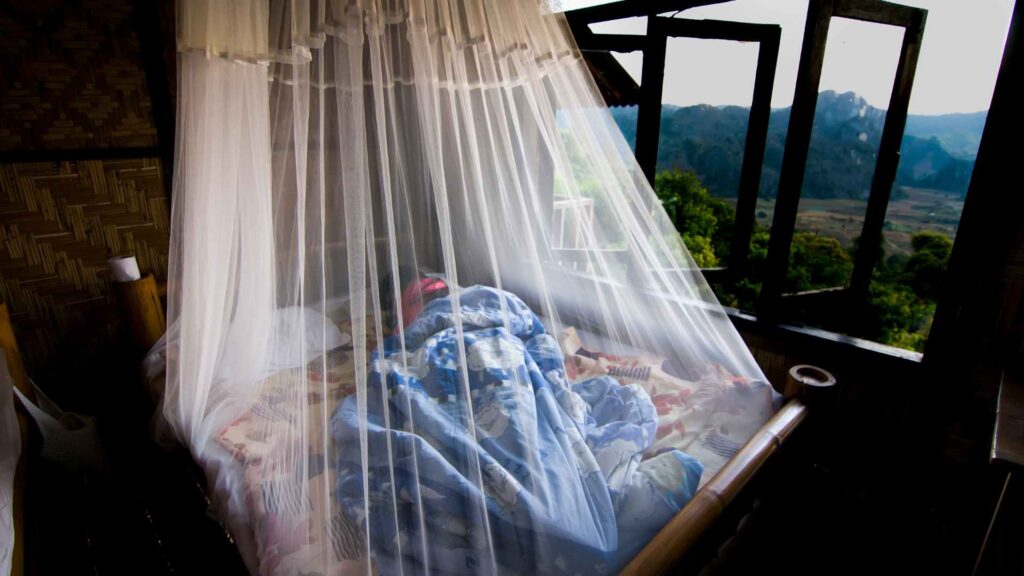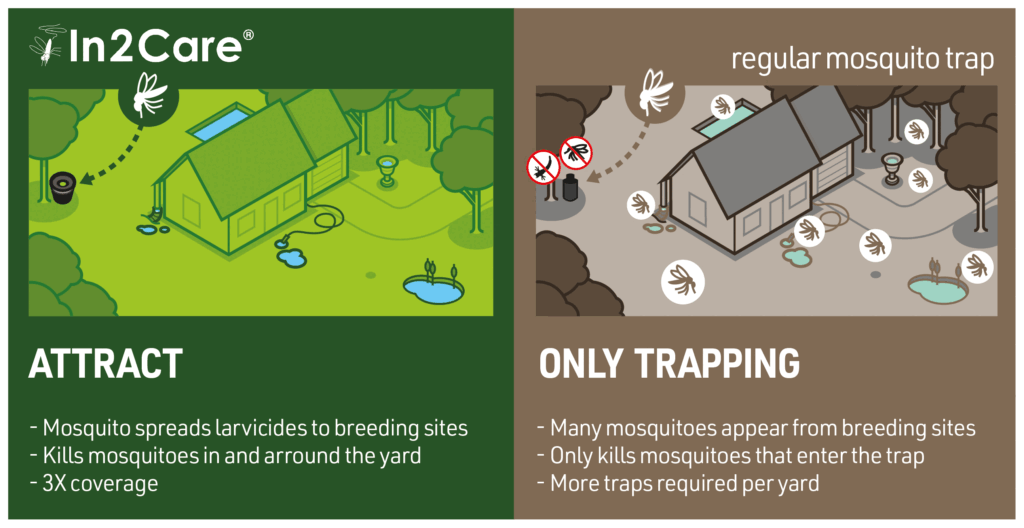Table Of Content
ToggleAs summer approaches, the buzz of mosquitoes can quickly turn a peaceful evening outdoors into an itchy nightmare.
These tiny pests not only leave irritating bites but also pose serious health risks by transmitting diseases like West Nile virus, dengue fever, and malaria.
The good news is, you don’t have to surrender your backyard to these unwelcome guests.
In this comprehensive guide, we’ll explore proven methods to keep mosquitoes at bay, ensuring that your outdoor spaces remain a safe and enjoyable haven throughout the season. L
These buzzing enemies come in over 3,000 varieties, but all share a similar life cycle. They breed in still water, where eggs hatch into larvae (think: aquatic wrigglers). After a pupal stage, they emerge as adults.
Only females need blood meals for egg development, explaining those itchy bites. Most active at dawn and dusk, they target us with their attraction to heat, CO2, and even sweat. Understanding these mosquito basics is key to keeping them at bay.

Environmental Management: Your yard can become a mosquito haven if you’re not careful. Eliminate potential breeding grounds by:
Sometimes, a little chemical intervention is necessary:
Let nature fight back:
Explore your pest control options for a safer home today.

The battle against these bothersome insects doesn’t stop at the front door. Here’s how to fight back, both indoors and outdoors, along with strategies for a community-wide approach.
Keep the fight inside your home:
Don’t let your yard become a mosquito haven:
Mosquito control is most effective when everyone works together. Advocate for:
Tailor your pest management strategy. Start now.

Mosquito activity isn’t a year-round nuisance. These pests thrive in warm weather, so understanding seasonal variations is key to winning the battle against them. Here’s how to adjust your approach based on the season:
Choose the best pest control frequency. Get expert guidance.
Mosquitoes are more than just a buzzing annoyance. They can be silent carriers of a variety of dangerous diseases, some potentially life-threatening. Here’s why understanding these health risks and prioritizing prevention is crucial:

Researchers are constantly developing new tools and technologies to combat mosquitoes, aiming for a future free from bothersome bites and mosquito-borne diseases. One such advancement is the innovative In2Care system.
In2Care represents a significant leap forward in mosquito control technology. Their patented InsecTech coating allows for the targeted application of high doses of biocides to mosquitoes. This coating is applied to netting used in the In2Care Mosquito Station, a product designed for professionals.
Here’s how In2Care technology works:
By utilizing a targeted approach, In2Care offers a valuable tool in the fight against mosquitoes, particularly in professional settings or areas with high mosquito populations. If you wanna try in2care contact us so we can apply this method for you.
Ready to fumigate your home? Contact us today for a customized quote!
By employing a combination of prevention, control, and community efforts, you can create a safe haven for yourself and your loved ones. As a pest control expert, I’ve seen firsthand the effectiveness of these strategies. But the fight against mosquitoes requires ongoing vigilance.
Regularly inspect your property for breeding grounds, maintain preventative measures, and don’t hesitate to seek professional help when needed. Together, we can turn back the tide of these tiny terrors and reclaim our outdoor spaces.
Preventing and controlling mosquitoes involves eliminating standing water, using repellents, and maintaining proper sanitation. Regularly empty and clean containers that can hold water, such as flowerpots, birdbaths, and gutters, to prevent mosquitoes from breeding. Additionally, use mosquito repellents and install screens on windows and doors to keep mosquitoes out.
The most effective method for mosquito control is using insect repellent combined with eliminating breeding sites. Applying DEET-based repellents and ensuring that there is no stagnant water around your home can significantly reduce mosquito populations. Wearing protective clothing and using mosquito nets also enhance protection.
Mosquitoes can be controlled by preventing their breeding through regular removal of stagnant water and use of larvicides. By eliminating water sources where mosquitoes lay their eggs and applying larvicides to standing water that cannot be removed, you can disrupt the mosquito life cycle and reduce their numbers.
The best way to keep mosquitoes away is by using mosquito nets, installing screens, and applying repellent products. Additionally, maintaining your yard by trimming bushes and mowing the lawn can reduce mosquito habitats. Using natural repellents like citronella candles and essential oils can also help keep mosquitoes at bay.
Your trusted pest control experts in Southern California. Keeping your neighborhood pest-free!